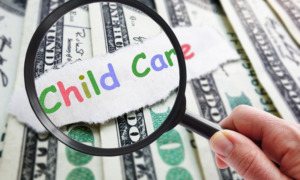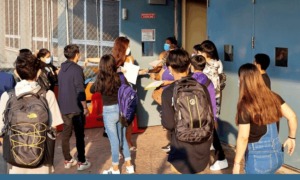Many years ago I attended a dinner party at which the conversation turned to the question, “Has a book ever changed your life?” What ensued was a raucous and engaging discussion that ranged from Doris Lessing to Hermann Hesse to Michael Harrington (my contribution at the time). The question has continued to intrigue me, both professionally and personally. As a youth worker, I have read voraciously – but seldom with that elusive payoff my friends and I described.
Then three years ago a colleague recommended a book, “Teaching the New Basic Skills: Principles for Educating Children to Thrive in a Changing Economy,” by labor economists Richard Murnane and Frank Levy. Curious about the recommendation but hardly expecting my life to change (what does the labor economy have to do with youth work?), I braced myself for depressing statistics and boring tables. Instead, I was rewarded with that rare kind of life-altering, practice-changing insight that had eluded me for years. Here’s the scoop.
Murnane and Levy conducted a masterful synthesis of data drawn from both the U.S. education system and our national and global economies, concluding that there is a colossal mismatch between the needs of the contemporary labor economy and the focus of our education system. Based on interviews and surveys of American business leaders, the authors concluded that there are five key sets of skills needed to succeed in the modern economy:
- Literacy and numeracy at a minimum ninth grade level;
- Written and oral communications skills;
- Problem-solving and critical thinking skills;
- Knowledge of and comfort with technology; and
- The ability to work with diverse groups of people.
In comparing these skills with the actual abilities of American students (using such reliable indicators as the National Assessment of Educational Progress), Murnane and Levy determined that approximately half of America’s 17-year-olds are not prepared to take the next step toward productive adulthood – be it further education or entry into the labor force. The clarity of their analysis helped me understand something I hadn’t fully comprehended before: That youth workers must accept some responsibility for addressing this serious shortfall – a shortfall so significant that our practice doesn’t make sense if we’re not contributing to the solution.
Here’s where the confession comes in. Even though I was trained as a developmentalist (social work school does a pretty good job of teaching the basic theories of human development), for a long time I believed that the cognitive aspect of young people’s development was someone else’s job – and that mine was to address the social, emotional, physical, moral and vocational dimensions. Even when my program development work grappled head-on with “academic” issues – for example, when at national Girls Incorporated we developed a math and science enrichment program for girls and young women – I saw our role more as promoting equity than contributing to cognitive development.
But Murnane and Levy helped me view our responsibility – and our opportunity – in a new light. As I thought about those five sets of skills, I envisioned a conceptual framework that embraced cognitive development as part of a holistic approach. I now think about the essence of our work as promoting young people’s learning and development – a subtle distinction, but one that could lead to significant changes on the ground. For example, are we intentional about integrating opportunities for young people to apply their math and literacy skills into our sports, arts, cooking, woodworking, computer and community service programs? Are we willing to listen to parents’ (and kids’ and teachers’) requests that we provide homework help as part of our after-school programs? Do we encourage and enable young people to play strategy games (such as chess and checkers) that build their problem-solving and critical thinking skills? Are we willing to share accountability for results with teachers and parents?
This is the bottom line: Are we willing to expand and modify our own practice in the face of the changing contexts in which schools, families, neighborhoods and society operate?
Jane Quinn’s 30 years of youth work experience includes direct service, national program development and philanthropy. She is assistant executive director for national community school partnerships at the Children’s Aid Society in New York City. She can be reached at janeq@childrensaidsociety.org.

























